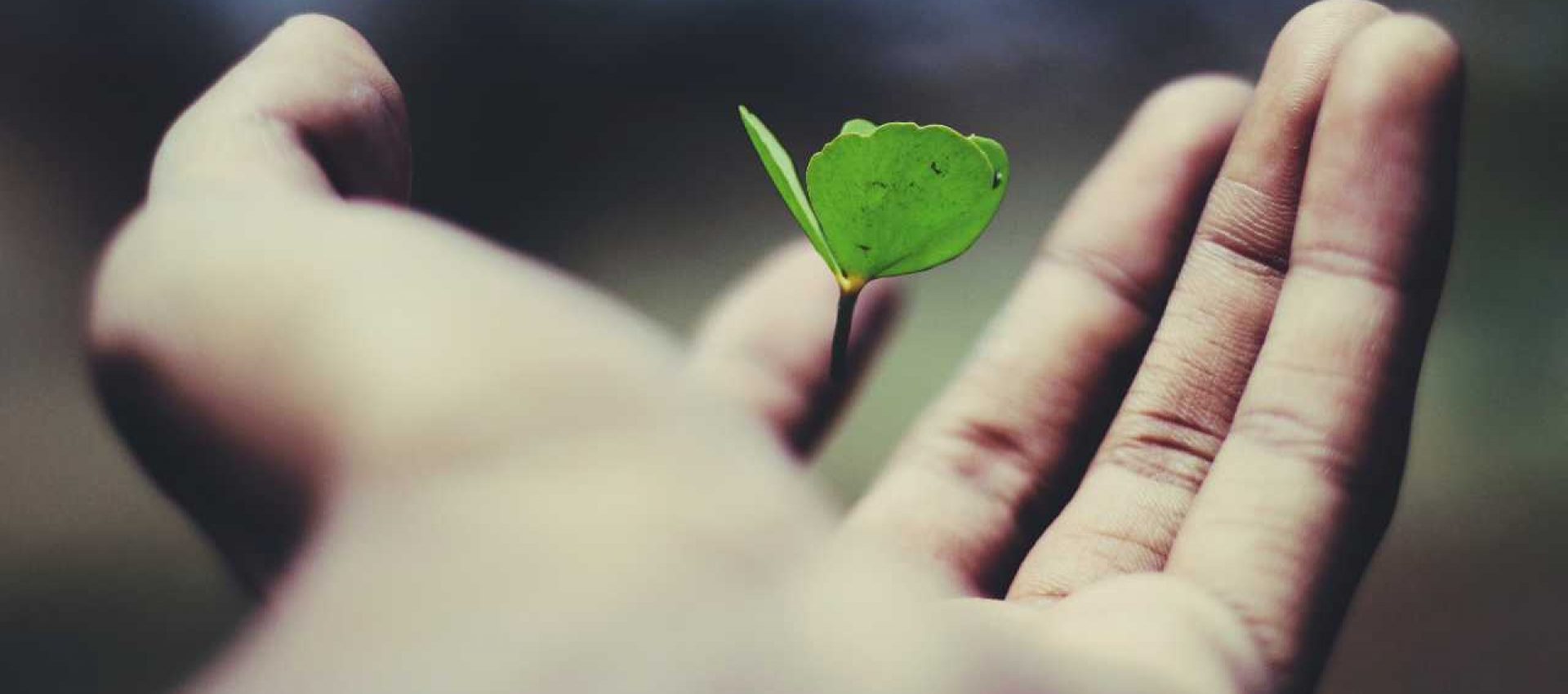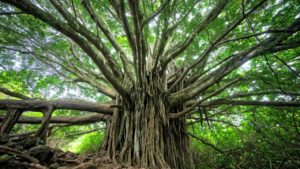Basic Life Skills

By Dr. Robert Leichtman
Scripture: Luke 12: 27-31
Consider the lilies, how they grow: they toil not, neither do they spin; yet I say unto you, even Solomon in all his glory was not arrayed like one of these. But if God so clothes the grass in the field, which today is, and to-morrow is cast into the oven; how much more shall he clothe you, O ye of little faith? And seek not what you shall eat, and what you shall drink, neither be doubtful of mind. For all the nations of the world seek these things. Your Creator knows you have need of these things. Seek the Creator’s life and design (i. e., his kingdom), and these things shall be added to you.
Summary: Our innate intelligence will guide our growth toward our destined wholeness. The plant kingdom reveals many examples of the basic principles of growth. Plants remind us to always grow toward the light, not our fears or resentment. They demonstrate the need be true to our original design as in tomatoes become only tomatoes and nothing else. And all plants deal with the “dirt” in their life by transforming them into new leaves and stalks, not frustration.
This scripture reminds us that we can draw many lessons and inspiration from the beauty of nature, the elegance of birds, and the delicacy of flowers. We also can be inspired by great works of art or music, as in Beethoven’s Ode to Joy, and Bach’s Sheep May Safely Graze. Others may be deeply moved by great literature such as the novels of Charles Dickens or books of Solzhenitsyn.
The ancient writers often used images of nature as examples of virtues that we need to duplicate. For instance, they might dramatize the concept of endurance by describing trees that have been standing more than 100 years. They might describe the:
- natural refinement and grace of leaves
- scented blooms of flowers.
- graceful movements of flocks of birds
- mutual cooperation and sacrifice of bees
- the never-ending movement of a river
- renewing power of life with the new growth in spring
Animals can also teach us many lessons. Today, when I am asked how to stay relaxed in such tense times, I recommend that they consult their cat or dog—or those of their friends if they don’t have a pet. Cats and dogs are experts about relaxing and snoozing in the most difficult times—especially the older ones. They don’t need elaborate instructions to relax their busy mind or emotions. When they are ready to snooze, they just let go and sleep. They are not concerned about:
- unresolved issues with their mommy or daddy
- the special treats they didn’t get
- the mice or squirrels they didn’t catch
- or if you, their master, are petting other cats or dogs
No, they often just roll up close to you or someplace warm and just relax. Occasionally they open an eye half way just to be sure you are still there and that they are still loved and cherished by this great, loving human.
Well, there you are—all the essential ingredients for relaxation. And you don’t have to pay big bucks or travel great distances to be taught by a special teacher. Your old cat or dog can be your mentor by demonstrating:
- staying in the present and its immediate comfort and safety is important
- the uselessness of reliving old struggles and stressful moments plus the anxiety, anger, or despair that attends them.
Your old cat or dog can show you how to enjoy the moment and the opportunity to take a break from our tasks and struggles. We can just let our fatigue and gentle desire for rest to completely take over our whole being.
Our ability to shift our attention and mood can be inspired by a cat’s or dog’s total belief that it is fully loved, cherished, and safe while it is in your household. That is, it dwells in the protection of their powerful master—you!
Of course, in our personal situation, our loving master, mentor, and protector is our Higher or Spiritual Self and all of its connections to universal powers of divine order, love, and light.
While we all have busy outer lives—some packed with more duties and obligations than others—it is easy to forget our internal connections to our spiritual possibilities. Yet the great benevolent power of our Creator is always present in our life. We need to take time to develop and maintain this connection. As complex as this relationship may seem to be, all of us can mimic the trust and devotion of an old favorite pet dog or cat who is very devoted and trusting toward us.
This is a living and practical example of how we can approach our higher self as our “lord and master”. It is fairly easy to do, unless you insist on complicating it by your skepticism that it will not work because this method is too simple. Just remember that an ordinary cat or dog does it easily and well. And note that insomnia is rarely seen in dogs or cats.
Some of the important lessons in life are so basic that even animals and plants have mastered them. We humans need to recognize this. If you can’t accept and master these simple fundamentals of living, you will probably miss many of the other truly important but more subtle ideas and techniques for right living.

Let us take a fresh look at the plant kingdom where other practical life skills are easily demonstrated. Plants often achieve growth with a simplicity and thoroughness that we humans struggle to perform. For starters, they demonstrate these basic principles of right living:
- they always grow toward the light—not the darkness of gloom, anger, or fear
- they always stay true to their innate design and dictates of their innate intelligence no matter how difficult their outer conditions are
When tulips are the big favorite of the neighborhood, the simple hyacinths remain true to their innate design and destiny. They are able to resist the competition and the popularity of other species. They also are not in the least intimidated by the big trees that overshadow them.
There is a third major lesson that plants can teach us. When plants have the most awful stuff dumped on them as “rich, natural, fertilizer,” the roses and plants don’t shriek and protest or sulk. They just get busy turning this fertilizer into new stalks, leaves, roots, flowers, or fruit. They:
- take the “fertilizer”
- add the inspiring light of the sun
- mix with water and mud
- and transform the mud and fertilizer into new leaves and stalks as designed, planned and destined by their innate intelligent design
So how about this? If your petunias and geraniums and delicate violets can do this,
- why can’t we master similar work in our self?
- why aren’t we always growing toward the light, that is, growing toward what we aspire to be and do in our hopes and positive expectations?
- why do we give so much time to obsessing on our fears?
- why do we obsess on our competition and enemies rather than focusing on our friends and those who can help us?
- why do we waste our time reliving our failures or regretting our mistakes and missed opportunities instead of giving our self-praise for:
- genuine success and achievements
- and the talent, effort, and sacrifice that went into them?
These examples of how all the plants grow toward the light remind us to aspire to reach our divine potentials for:
- the higher intelligence that can helps us through difficult times
- the inner peace than can calm our fears
- the joy of living that can neutralize some of our sadness
- our God-given talents and strengths we have already developed
- We need to remind ourselves that we can resist the temptation to become frustrated or spend our time sulking about how difficult our life is. Like the average, simple flower or vegetable, each of us has an innate design for wholeness.
- the tomato always become a good tomato—not a dandelion
- the tulip always becomes a tulip—not a weed
- the lilac always becomes a lilac—not a maple tree
So also, our innate, spiritual design is to become a mature adult with an intelligent, rational mind, mature values, priorities, and coping skills plus a compassionate heart. These are the qualities that enable us to live a life of integrity, responsibility, kindness, and helpfulness.
When we are distracted by our struggles, pain, suffering, illness, and other obstacles, we need to remember that we have, just as plants do, an innate spiritual intelligence and design to guide us in terms of:
- our sense of who we are designed to be and can become
- that we all have God-given talents and strengths
- and we can call on our innate life force to provide the power to change, grow, and overcome or compensate for whatever obstacles we face
Finally, remember how plants deal with “natural fertilizer”. They use it as the fuel for new growth, transforming it into new life of leaves, stalks, and roots. In the same way we can match their ability to transform our challenges into new degrees of stamina, self-control, confidence, and a greater ability to let go of bad memories and move on.
Also remember that, no matter how difficult the environment of plants, they always stay true to their innate design and dictates of their innate intelligence.
Think on these things

Garden & Growth
The innate life of our Higher Self compels growth that fulfills the inner seed of our design for wholeness. Many obstacles exist in us that hinder this growth, just as poor soil conditions can retard the growth of physical seeds. Obstacles to this evolutionary growth in us can be factors such as being trapped in dogma, materialism, chronic frustration, stubbornness, and shallow emotional interests.

The Art of Visualization
The Art of Visualization By Dr. Robert Leichtman Visualization is part of the creative abilities everyone possesses. Its general usefulness is to explore new possibilities
